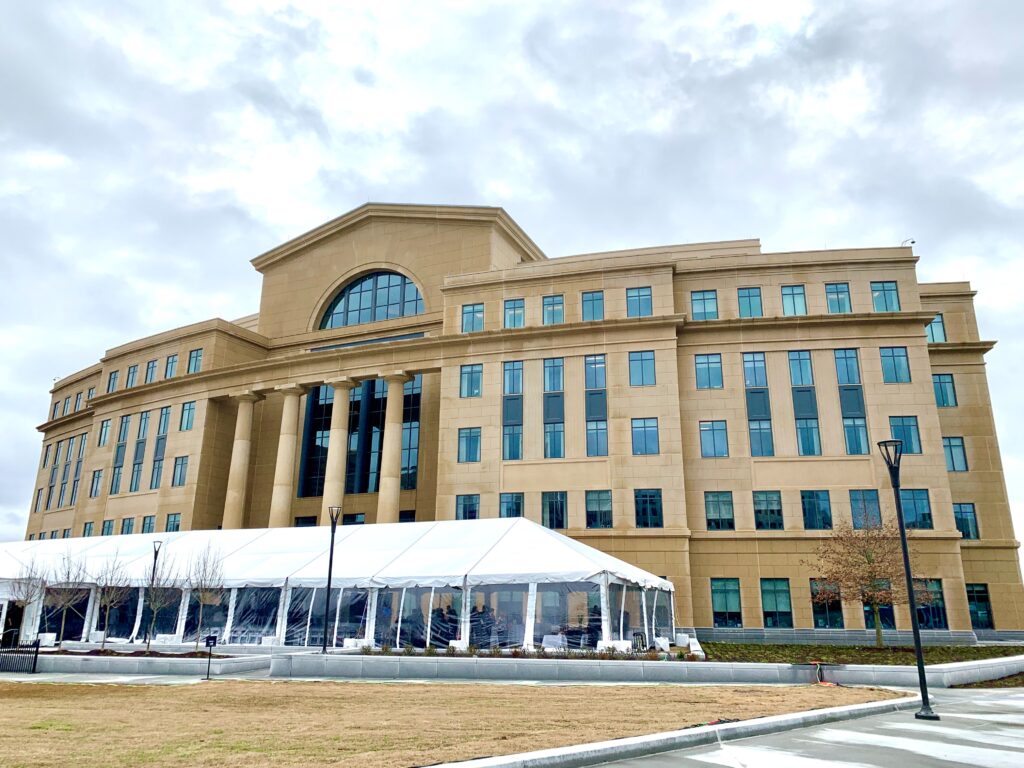
ATLANTA – Two Democratic politicians arrested for protesting in the Georgia Capitol Rotunda in separate incidents neither intended to disrupt the General Assembly nor actually caused any disruptions, an Atlanta civil rights lawyer told the state Supreme Court Wednesday.
Gerald Weber – representing former state Sen. and current U.S. Rep. Nikema Williams, state Rep. Park Cannon and several other Georgians – urged the justices to rule the state law used in making the arrests overly broad and, thus, unconstitutional.
“We have people who were at a protest and didn’t say a word … people with signs and buttons engaging in conduct that was constitutionally protected,” Weber said toward the end of Wednesday’s oral arguments before the high court.
But Principal Deputy Solicitor General Ross Bergethon said state law treats the state Capitol differently from other parts of the Capitol complex, such as Liberty Plaza across the street.
“The Capitol building is not a public park,” he said. “It’s the seat of two branches of government.”
Williams and several Georgia residents were arrested by Capitol Police in November 2018 for protesting inside the Capitol Rotunda. Cannon was arrested in March 2021 for knocking on the door of Republican Gov. Brian Kemp’s office door as he was signing controversial election law changes that had just been passed by the General Assembly’s GOP majorities.
Weber argued that the 2018 arrests took place in a portion of the Capitol building historically set aside for the public.
“All of our citizens were arrested in the Rotunda, a traditional public forum,” he said.
In Cannon’s case, the plaintiffs maintained her knocking on the governor’s door was a nonverbal act not covered by the state statute.
That argument seemed to draw support from Justice Charles Bethel.
“What does knocking on a door to the governor’s office have to do with disrupting the General Assembly?” Bethel asked Bergethon.
Bergethon responded that the governor’s office – unlike the Capitol Rotunda – is not a public forum.
“The governor’s entitled to keep people out,” he said.
The court is expected to issue a ruling later this year.